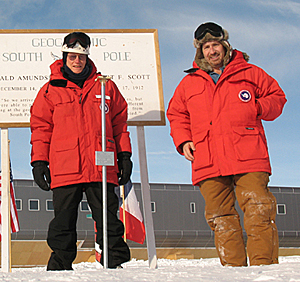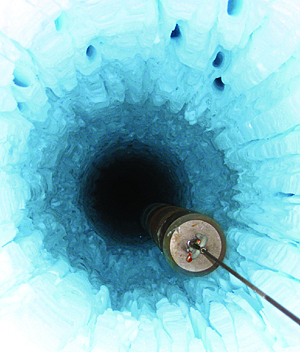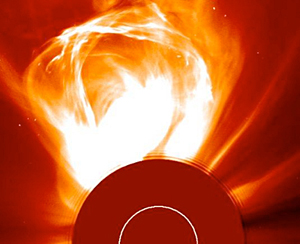


ADVERTISEMENT
- Rozovsky wins prestigious NSF Early Career Award
- UD students meet alumni, experience 'closing bell' at NYSE
- Newark Police seek assistance in identifying suspects in robbery
- Rivlin says bipartisan budget action, stronger budget rules key to reversing debt
- Stink bugs shouldn't pose problem until late summer
- Gao to honor Placido Domingo in Washington performance
- Adopt-A-Highway project keeps Lewes road clean
- WVUD's Radiothon fundraiser runs April 1-10
- W.D. Snodgrass Symposium to honor Pulitzer winner
- New guide helps cancer patients manage symptoms
- UD in the News, March 25, 2011
- For the Record, March 25, 2011
- Public opinion expert discusses world views of U.S. in Global Agenda series
- Congressional delegation, dean laud Center for Community Research and Service program
- Center for Political Communication sets symposium on politics, entertainment
- Students work to raise funds, awareness of domestic violence
- Equestrian team wins regional championship in Western riding
- Markell, Harker stress importance of agriculture to Delaware's economy
- Carol A. Ammon MBA Case Competition winners announced
- Prof presents blood-clotting studies at Gordon Research Conference
- Sexual Assault Awareness Month events, programs announced
- Stay connected with Sea Grant, CEOE e-newsletter
- A message to UD regarding the tragedy in Japan
- More News >>
- March 31-May 14: REP stages Neil Simon's 'The Good Doctor'
- April 2: Newark plans annual 'wine and dine'
- April 5: Expert perspective on U.S. health care
- April 5: Comedian Ace Guillen to visit Scrounge
- April 6, May 4: School of Nursing sponsors research lecture series
- April 6-May 4: Confucius Institute presents Chinese Film Series on Wednesdays
- April 6: IPCC's Pachauri to discuss sustainable development in DENIN Dialogue Series
- April 7: 'WVUDstock' radiothon concert announced
- April 8: English Language Institute presents 'Arts in Translation'
- April 9: Green and Healthy Living Expo planned at The Bob
- April 9: Center for Political Communication to host Onion editor
- April 10: Alumni Easter Egg-stravaganza planned
- April 11: CDS session to focus on visual assistive technologies
- April 12: T.J. Stiles to speak at UDLA annual dinner
- April 15, 16: Annual UD push lawnmower tune-up scheduled
- April 15, 16: Master Players series presents iMusic 4, China Magpie
- April 15, 16: Delaware Symphony, UD chorus to perform Mahler work
- April 18: Former NFL Coach Bill Cowher featured in UD Speaks
- April 21-24: Sesame Street Live brings Elmo and friends to The Bob
- April 30: Save the date for Ag Day 2011 at UD
- April 30: Symposium to consider 'Frontiers at the Chemistry-Biology Interface'
- April 30-May 1: Relay for Life set at Delaware Field House
- May 4: Delaware Membrane Protein Symposium announced
- May 5: Northwestern University's Leon Keer to deliver Kerr lecture
- May 7: Women's volleyball team to host second annual Spring Fling
- Through May 3: SPPA announces speakers for 10th annual lecture series
- Through May 4: Global Agenda sees U.S. through others' eyes; World Bank president to speak
- Through May 4: 'Research on Race, Ethnicity, Culture' topic of series
- Through May 9: Black American Studies announces lecture series
- Through May 11: 'Challenges in Jewish Culture' lecture series announced
- Through May 11: Area Studies research featured in speaker series
- Through June 5: 'Andy Warhol: Behind the Camera' on view in Old College Gallery
- Through July 15: 'Bodyscapes' on view at Mechanical Hall Gallery
- More What's Happening >>
- UD calendar >>
- Middle States evaluation team on campus April 5
- Phipps named HR Liaison of the Quarter
- Senior wins iPad for participating in assessment study
- April 19: Procurement Services schedules information sessions
- UD Bookstore announces spring break hours
- HealthyU Wellness Program encourages employees to 'Step into Spring'
- April 8-29: Faculty roundtable series considers student engagement
- GRE is changing; learn more at April 15 info session
- April 30: UD Evening with Blue Rocks set for employees
- Morris Library to be open 24/7 during final exams
- More Campus FYI >>
11:35 a.m., Nov. 11, 2010----University of Delaware researchers are now deploying to Antarctica to finish building a giant “IceCube.” That's the name of the telescope that, when completed in February, will cover an expanse of almost 200 football fields over a mile-and-a-half deep in the ice near the South Pole.
With this new eye into the universe, scientists hope to uncover the origins of high-energy particles called neutrinos that are formed during such cataclysmic cosmic events as exploding stars, gamma ray bursts and colliding galaxies. The icy tool also will aid in monitoring explosive solar activity that can have damaging effects on technology systems on Earth.
Often referred to as high-energy messengers from the universe, neutrinos zoom right through planets and even our own bodies because they are full of energy, yet lack an electrical charge.
Classrooms and the public worldwide are invited to follow the scientists, from Dec. 1-15, through a UD website that will include daily blogs and photos from the researchers, a downloadable study guide, and a “phone call to the deep freeze” that will connect selected classrooms with the researchers in a live conference call.
Teachers may register their classrooms for the free program now at this website. Registrations must be received by Nov. 22 to be considered for the phone call.
Supported by the National Science Foundation (NSF), the classroom activities are designed to engage new audiences, including budding scientists, in the process of research, according to Thomas Gaisser, Martin A. Pomerantz Chaired Professor of Physics and Astronomy at UD.
Gaisser is one of three principal investigators and currently the spokesperson of the massive project, which is being coordinated by the University of Wisconsin. The international effort began in 2004 and involves more than 30 institutions.
“We look forward to sharing our experiences at the South Pole with students and the public,” Gaisser says. “We hope for many new discoveries about the universe, thanks to this novel telescope.”
When completed in February 2011, IceCube will consist of 86 strings, each containing 60 optical detectors, frozen over a mile-and-a-half deep in the Antarctic ice sheet.
As a neutrino passes through the ice, it occasionally slams into a molecule of ice, which generates other particles that produce a flash of light as they pass through the ice from below the Earth.
IceCube's optical detectors are designed to capture the flash of light and stamp it with a precise time code. From this information, scientists can reconstruct the particle's path and trace its origins, perhaps to an exploding star or the matter falling into a black hole.
Gaisser and his research team from the UD Department of Physics and Astronomy and the Bartol Research Institute are completing the telescope's surface array of detectors called “IceTop,” which allows the UD group to study showers of particles from interactions of high-energy cosmic-ray particles in the atmosphere.
Atop each of the 86 deep ice strings, UD researchers are installing two 650-gallon tanks of water that each contain two optical detectors. The tanks are filled with water, and the freeze is controlled to produce perfectly clear ice for monitoring cosmic activity, not just cosmic rays from outer space, but also solar activity.
“When a solar flare occurs, a tremendous amount of energy is released, and matter from the sun's corona is ejected at high velocity,” says Prof. Paul Evenson, another member of the UD group. “A shock wave driven by this coronal mass ejection can accelerate particles with sufficient energy that their interaction in the atmosphere produces secondary particles appearing as a sudden increase in the counting rate of our IceTop detectors. Scientists want to know more about phenomena like solar flares because they can disrupt power and communications systems on Earth.”
Coordinated by UD's Office of Communications and Marketing, “Extreme 2010: An Antarctic Adventure” is the eighth program in UD's popular online expedition series, which has won state and national awards for excellence. Previous programs focused on another “extreme” environment: deep-sea hydrothermal vents.
Article by Tracey Bryant


